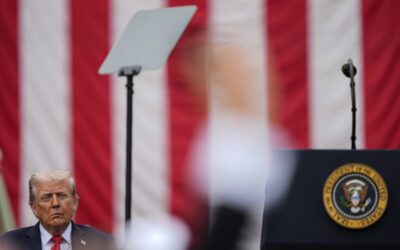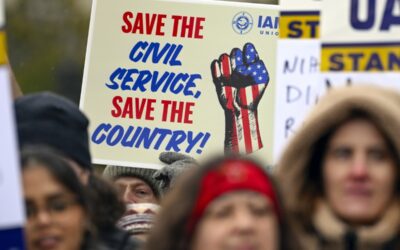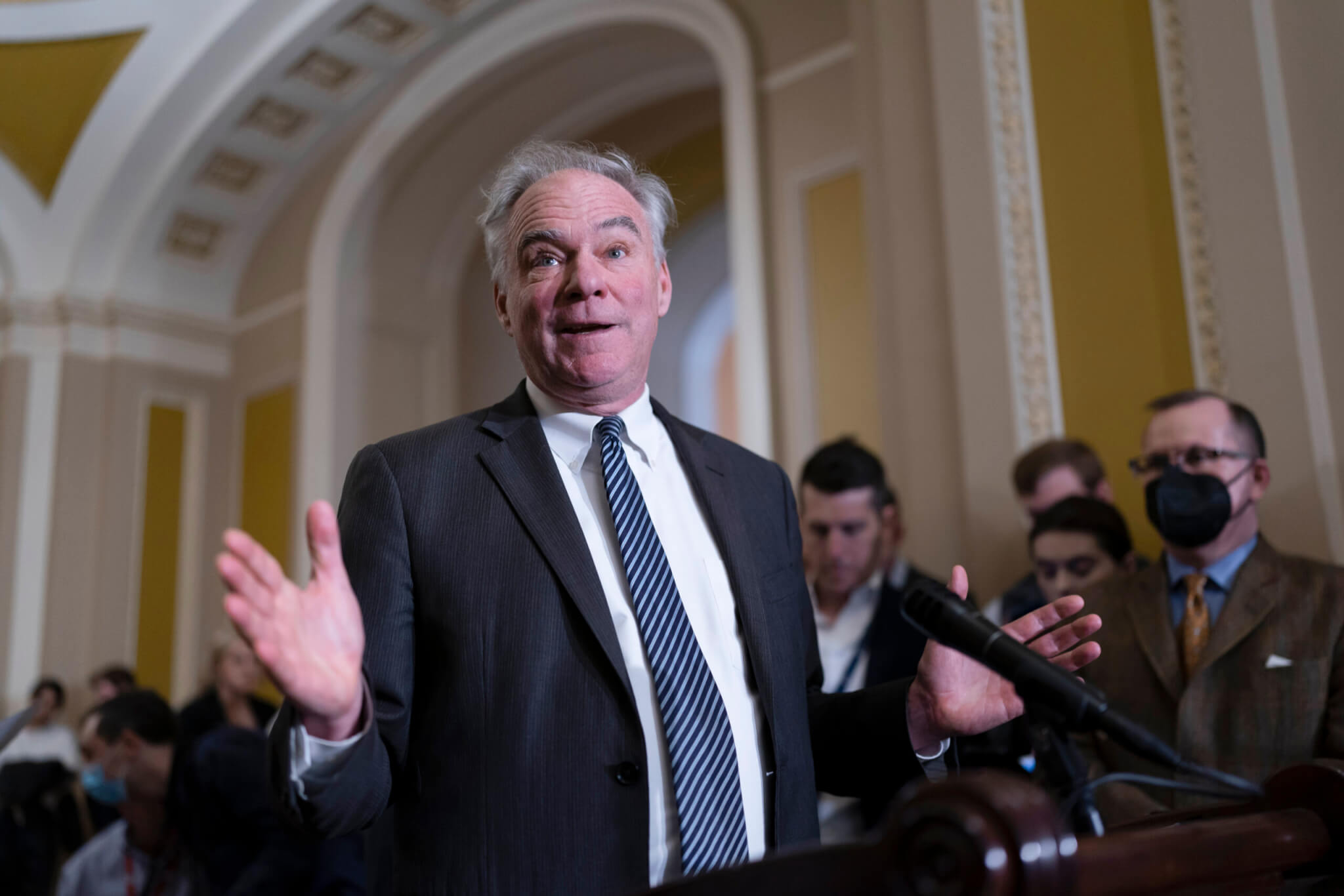
Sen. Tim Kaine, D-Va. (AP Photo/J. Scott Applewhite)
As arguably the state hardest-hit by federal government shutdowns, Virginia is no stranger to fallout of fiscal dysfunction in Congress. But some of Virginia’s representatives in Washington are working to protect hardworking Virginians from the threat of congressional budget impasses.
Virginia is second only to California in terms of residents holding federal jobs; specifically, 144,000 residents of the commonwealth receive their paychecks from the U.S. government, according to the U.S. Office of Personnel Management (although a recent congressional report puts that number at 170,000). Virginia is also first among all 50 states in military spending, with much of that funding divided between the Pentagon in Northern Virginia and Naval Station Norfolk in Hampton Roads.
All this adds up to a disproportionate amount of pain felt by Virginians whenever Congress’s failures result in a government shutdown; federal workers and active-duty military don’t get paid if the government isn’t open. But some Virginia Democrats on Capitol Hill are working to protect their constituents from these hardships.
In September, U.S. Senator Tim Kaine and Rep. Don Beyer (VA-08) introduced the End Shutdowns Act, which is designed to prevent future shutdowns and the “senseless pain” they bring to not only those employed by the federal government, but also those who rely on government services.
The measure aims to end the use of government shutdowns as a negotiating tactic by initiating an automatic continuing resolution at the beginning of the federal fiscal year — Oct. 1 – to keep the government funded if no appropriations bill has passed by then. The bill also prevents the U.S. Senate from moving forward with any other legislation until Congress reaches a long-term spending agreement.
“Government shutdowns have disastrous consequences for federal employees and government contractors and slow down critical government services that millions of Americans rely on like getting replacement Social Security cards and food inspections,” said Kaine in a statement. “But politicians continue to use or threaten to use government shutdowns as a negotiating tactic.”
More recently, Kaine also introduced the Modernizing the Federal Calendar Act, which shifts the federal fiscal year to the calendar year, having it end on Dec. 31 instead of Sept. 30.
According to Kaine, this shift would “reduce the prevalence of stopgap funding and eliminate the October shutdown threat by making the end of the fiscal year align with the end of the calendar year, when Congress has historically passed a full-year government funding bill.”
The last time Congress adopted a federal budget by the Oct. first beginning of the fiscal year was in 1997.
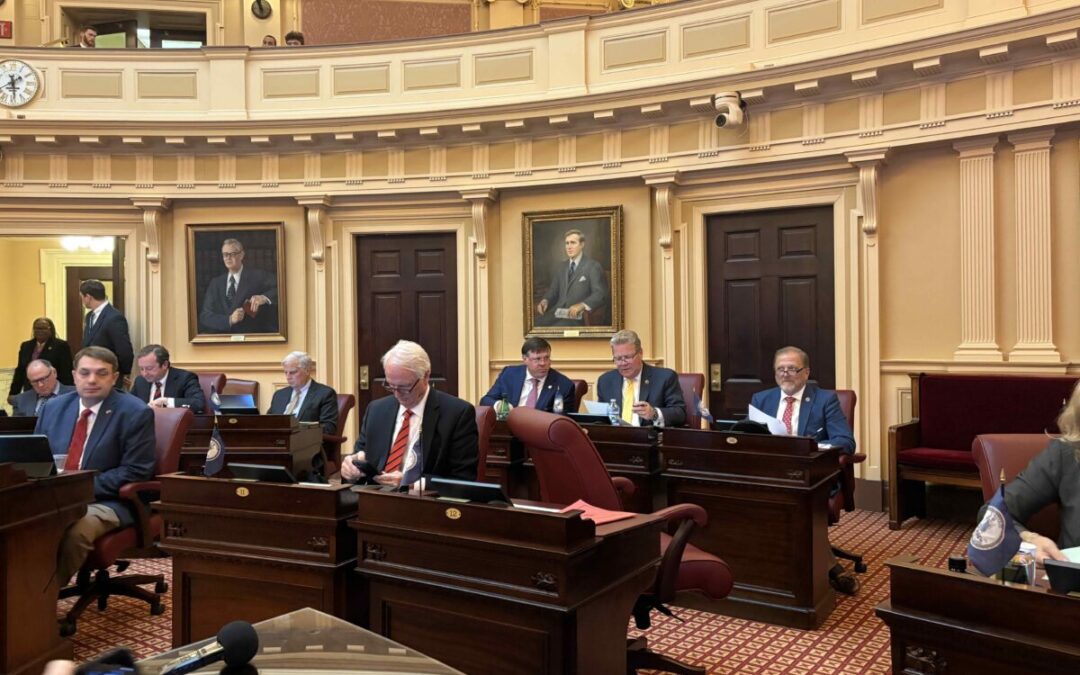
Virginia can raise billions with new taxes on millionaires, report finds
The income of a public school teacher in Virginia is currently taxed at the same rate as the income of millionaire business executives. A new report...
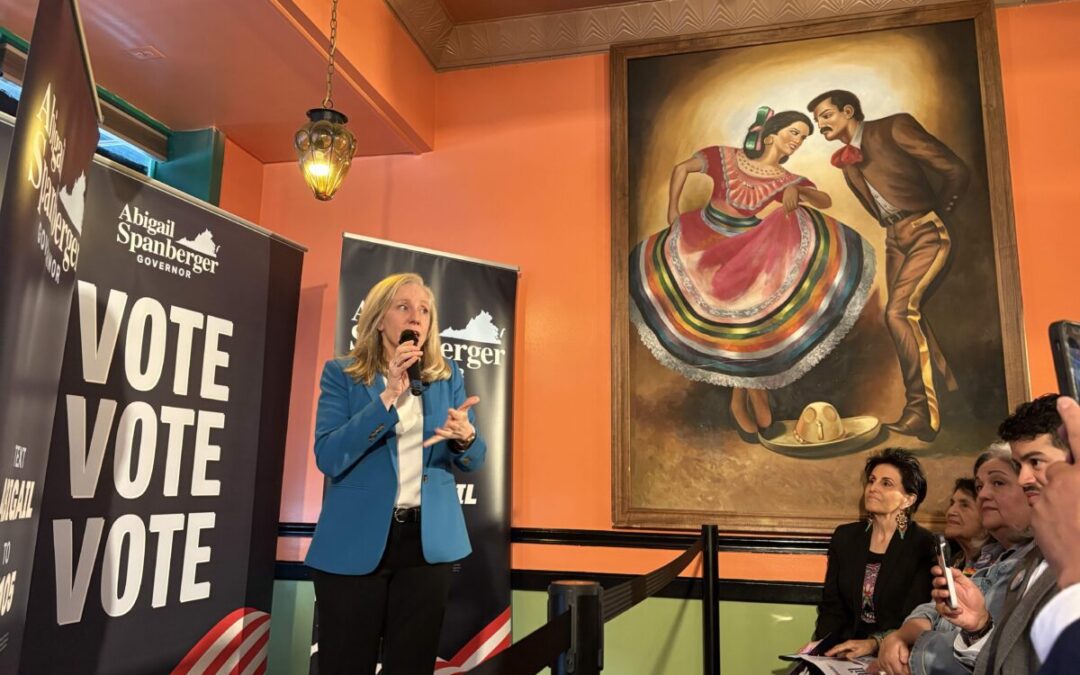
Spanberger rallies Latino voters in Alexandria amid growing distrust of government, deportation fears
The impacts of the Trump administration’s mass deportation program mean fewer Latinos are showing up to their jobs while those who do risk being...

Virginia families face increased hunger risk from government shutdown
Over 850,000 Virginians risk losing access to SNAP federal food assistance because of the government shutdown. Ariele Robinson works two retail jobs...

Virginia’s economy slowing amid Trump-fueled uncertainty
The Trump administration’s mass federal layoffs are hurting Virginia’s economic growth. Ricardo Ortiz lost his job last week as bar manager for the...
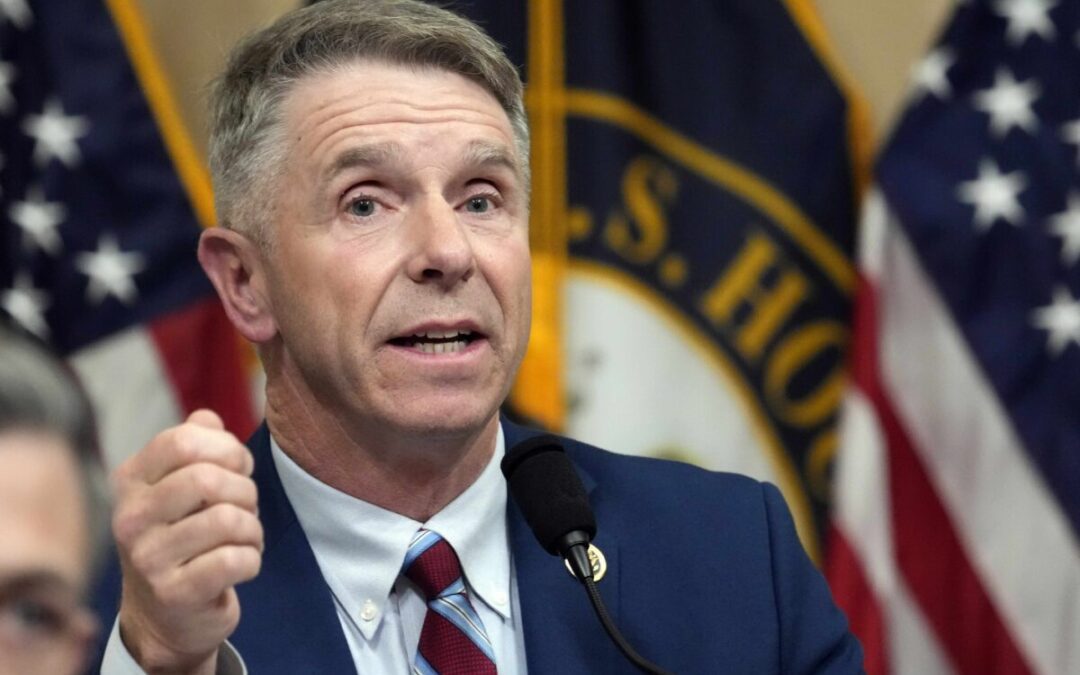
Report: Virginia Republican to get big tax cut from bill he helped pass
US Rep. Rob Wittman disputes the report’s claim that he will “see direct personal benefits” from President Trump’s “Big Beautiful Bill.” A new...
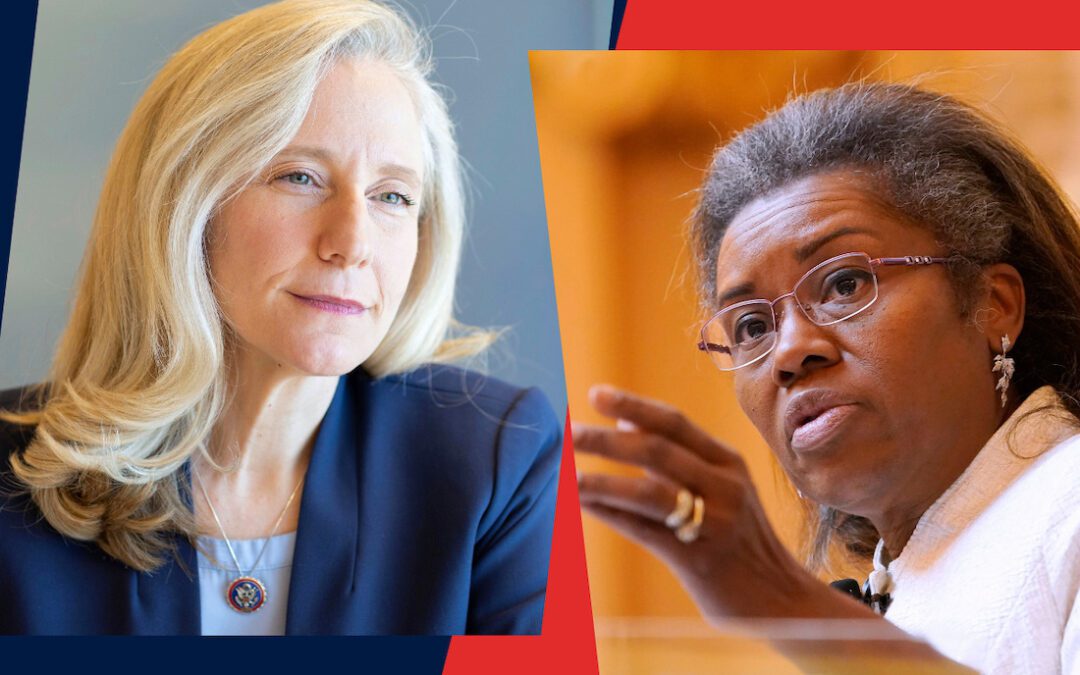
Earle-Sears, Spanberger trade barbs as Virginia shutdown woes worsen
At a contentious debate Thursday, the two candidates for governor offered differing views of how to handle the ongoing government shutdown. This...




